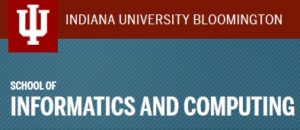 Indiana University School of Informatics and Computing researchers have received US $1.8 million from the National Science Foundation (NSF) to ensure that door locks, lightbulbs, cameras and other common household items, which are increasingly connected to the Internet, remain secure.
Indiana University School of Informatics and Computing researchers have received US $1.8 million from the National Science Foundation (NSF) to ensure that door locks, lightbulbs, cameras and other common household items, which are increasingly connected to the Internet, remain secure.
According to an announcement put out by the university, IU School of Informatics and Computing professors L. Jean Camp, Steve Myers and Ryan Henry will use the support from NSF to advance cybersecurity of the Internet of Things.
The support is part of an award totaling US $3 million to IU and the University of Washington. Camp, Myers and Henry are the primary investigators on the study. Collaborators are Tadayoshi Kohno and Shwetak Patel of the University of Washington.
“The privacy issues in an Internet of Things environment are numerous,” Camp said, in the statement. “It creates a world where many people may interact with the same technology, and technology may interact with many other technologies. Even in traditional digital environments, like the web, privacy can be extremely challenging; users often aren’t even aware it’s been compromised.”
Among the topics under investigation, Camp and colleagues will explore ways to ensure that the growing sector of connected home technology does not compromise the privacy of unintended users of these devices, such as children, home visitors and homebuyers.
“A house with numerous built-in technologies may have many people living in it, like parents, children and grandparents, or visitors who temporarily introduce another device into the technological ecosystem,” Myers added. “Or, when a family sells a house, they may leave behind their internet-connected devices for the next occupants.
In the first year of the project, the researchers will assess the current IoT landscape to ensure they’re looking “beyond the cutting edge as perceived by industry.” They will then work to ensure their findings line up with concerns about privacy among both businesses and consumers, as well as review the technical specs and protocols used to develop the current generation of connected devices.
A review of public concerns about personal privacy will take place through surveys and interviews, among other methods.
In the last year, researchers will construct prototype IoT devices that match the requirements revealed through earlier phases of the project. These efforts will feature sessions in which IU students attempt to hack prototype devices developed by the project’s collaborators at the University of Washington.
Image Credit: Indiana University Bloomington
